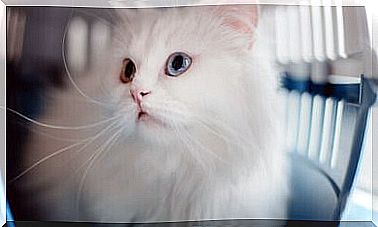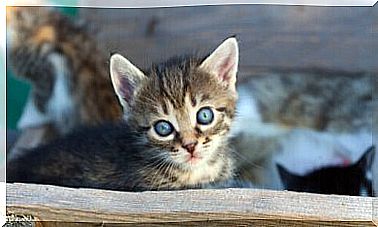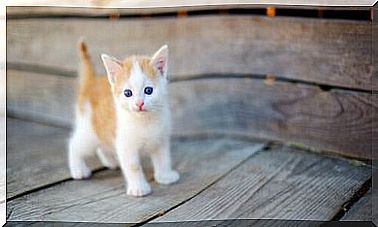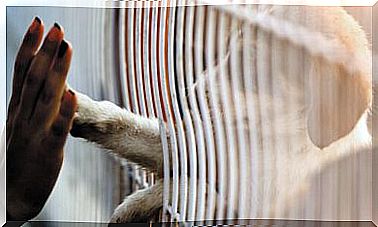How To Understand Your Cat

They say cats are traitors and you never know where they will come from. For all those who think so, we are sorry, because we at My animals disagree. Cats are being sweet and loyal, although it is true that they have a particular personality, not always easy to understand. In this article we will provide you with the tools to understand your cat.
We at My Animals will help you to understand the language of your cat. If at times you have felt misunderstood by him or thought you could not understand him, rest assured, and continue reading our article.
Understanding your cat. Cats and their oddities
Not all cats are the same, we know this well, right? However, they all share some behaviors that we have called oddities, because they are different from those of other pets, such as dogs.
But understanding your cat won’t be that hard if you learn to distinguish these behaviors and their meaning. Let’s see at least 4:
1. Understanding the vocal sounds of cats
Cats make different sounds and each of them has a different meaning. Remember that they do not speak, so you will have to know what they want depending on the sound they will make.

Meowing
It is simply their language. Usually, when cats meow, they want something from you: caresses, food, water, you give them something or just leave them alone.
The more time you spend with your cat, the easier it will be to recognize its meows and interpret what they mean. In fact, each of these is different and has its own meaning (we have already explained it to you in another article).
Purr
These have always been associated with concepts such as happiness or pleasure, aside from the fact that they could also indicate a health problem.
If your cat doesn’t purr, don’t worry, not everyone knows how to purr. Knowing this is part of the path to understanding your cat.
Grunt or blow
Cats do this when they are angry. For this, do not think that, being you the masters, he will calm down if you take him in your arms. Forget him, in fact, you should not try to pick him up when he is angry, because he could bite or scratch you. Remember that animals do not have the power to control their emotions.
2. Body language
Angry
An angry cat won’t always complain. His body language, however, will give you some clues about it: for example dilated pupils, straight hair, fixed gaze.
If what he is feeling is fear, he will have his ears pulled back and he will gather on himself, as if he wants to hide in his body.
Rubbing against people
There are people who bothers him, but this attitude has an explanation. It’s how cats show a strong bond with people
The same happens with other animals.
Knead
All cats do it, but few know the meaning of this gesture. When they are small, cats knead their mother’s breasts to help the milk flow out. It is a habit that never goes away.
3. Understand their behavior towards other cats
Dominant or dominated
Cats have their own hierarchies and there will always be one dominant and one dominated. The dominant will stiffly move towards the other cat with ears and tail upright.
If your cat is submissive, he will proceed towards the dominant with his eyes, ears and tail pointing downwards.
A new cat
Before you bring a new feline home, you need to make sure your cat will accept it.
It is possible that at first he complains or hisses at him often, as it is normal for him to see the new tenant as a threat; however, in general, this is a behavior that will soon pass if they accept each other.
Feline bonds
Despite having a reputation for being independent, cats are sweet beings who need love and affection, from people or felines. For this reason, they form very strong bonds between them. When a cat suffers the loss of a companion, it can meow for days, as well as not touching food.
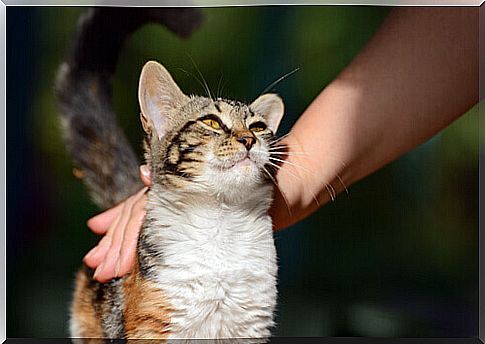
4. Destructive behavior
Many are reluctant to adopt a cat, because they believe that it destroys everything with their nails. This is a behavior that can be remedied by buying a scratching post to allow the cat to claw on it.
However, when the cat has destructive attitudes, it may be hiding a more serious problem.
One hypothesis could be that your pet is depressed or sad about something. An animal psychologist could help you.
Another destructive behavior is to urinate everywhere. If this happens, it could be a problem with the litter box, perhaps because you don’t clean it every day. Cats are extremely clean animals!
We hope we have helped you to understand your cat better and to love him even more, if this is possible!


